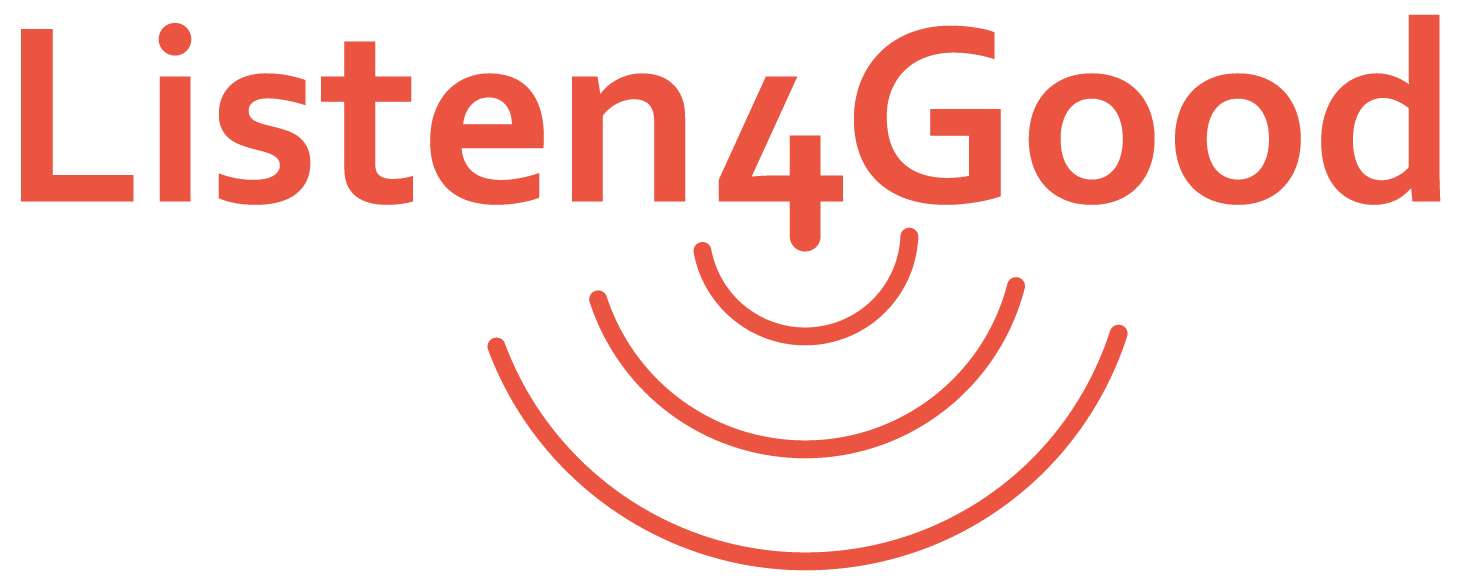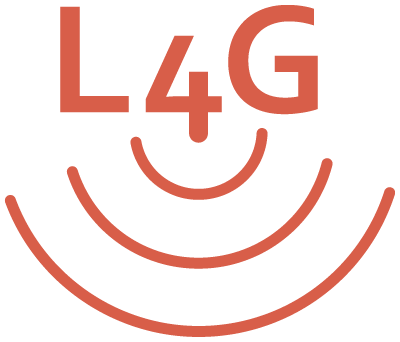- Case Studies
Building Trust Through Listening: How Two Organizations Used Community Feedback to Guide Their Work
October 1, 2025
- Collecting Feedback
- Advocacy
- Closing the Loop
- Community Voice
- Surveying
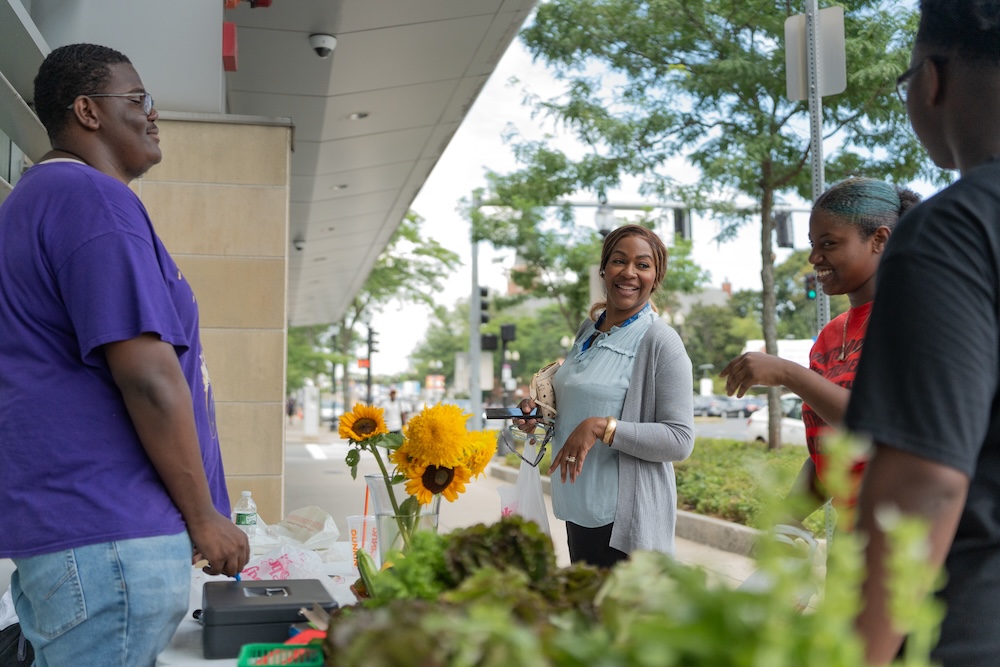
Listening to community matters now more than ever. As nonprofits and funders face heightened pressure to deliver meaningful results, high-quality community surveying can clarify priorities, build trust, and shape responsive strategies.
In recent months, Listen4Good has seen growing demand for community-wide surveys, particularly from organizations wanting to hear from those affected by changing federal policies and local contexts. To make community surveying effective, nonprofits are looking to hear from a wide range of community members, compared to Listen4Good’s client surveys, which focus on hearing from individuals currently in a program or receiving services.
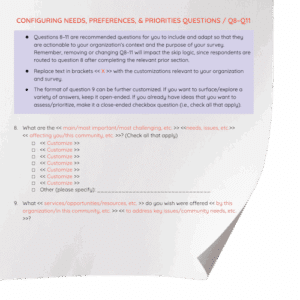
High-quality community surveying helps organizations to:
- Better target advocacy efforts by ensuring decisions are informed by the voices of those most affected.
- Guide strategic and program pivots, grounding choices in lived experiences and preferences rather than assumptions.
- Reinforce trust in local institutions. By listening in multifaceted ways and showing that input is valued and acted upon, organizations reaffirm their role as trusted partners.
Mattapan Food and Fitness Coalition (MFFC), a health and wellness organization working to improve health, food access, and transportation equity in Mattapan, a culturally-rich, historically Black and immigrant neighborhood in Boston, and the Keweenaw Community Foundation (KCF), a community foundation serving Michigan’s rural Upper Peninsula, each began their Listen4Good journey focused on client feedback. But they quickly recognized a need to go further.
With Listen4Good’s coaching and customizable tools, both organizations launched community-wide feedback initiatives that reached beyond their current client base to engage people they hadn’t previously heard from. Their efforts demonstrate how community feedback can inform not only programming but also advocacy as they center community voice in decision-making.
Community feedback builds on an authentic desire to understand those most affected.
Effective listening efforts must be grounded in a clear-eyed understanding and appreciation of the local context and history.
For the Mattapan Food and Fitness Coalition, the region’s demographic and experiential diversity had to inform every step of its feedback process. Before drafting survey questions, MFFC engaged in internal and community conversations to discuss:
- The organization’s role in Mattapan, acknowledging the influence it holds and where its capacity has limits.
- What change they envision for Mattapan, particularly in areas like food access, housing stability, youth opportunity, and public health.
- Their goals for this community surveying project, including how it could capture diverse perspectives and elevate underrepresented voices.
- What would be possible to act on immediately versus areas that require longer-term advocacy or cross-sector collaboration.
For the Keweenaw Community Foundation, embarking on an authentic listening journey similarly first meant having honest conversations about the region’s past. The Upper Peninsula has a long history of natural resource extraction many residents have felt excluded or underserved by institutions for generations. Before drafting survey questions, KCF engaged in internal reflection and community dialogue to clarify:
- Where they fit in the local context — their role, influence, and limits.
- How historical dynamics eroded trust between residents and institutions.
- What change they envisioned for the community, and how the survey could support these efforts.
For both organizations, this dialogue laid critical groundwork for implementing feedback processes that were transparent, inclusive, and respectful of lived experiences. It also shed light on what was possible for the organizations to act on and where they needed to manage expectations.
Working with Listen4Good provided opportunities to transition from anecdotal evidence to validated community needs.
Mattapan Food and Fitness Coalition has always included advocacy as a part of its core, with its volunteer members collaborating with decision makers to ensure the Mattapan community is heard. In fact, Mattapan’s current Executive Director Shavel’le Olivier first learned about the organization when providing input as a local teen. Since then, Shavel’le has grown into leadership, guiding MFFC’s transition from a volunteer-run collective to an organization with full-time staff, an advisory board, and interns. Through its growth, MFFC has remained true to its foundation of listening.
In its Listen4Good project, the team sought support to launch a Community Needs Assessment, a structured process that would gather input directly from the entire Mattapan community of residents, to inform their strategic plan.
MFFC partnered with a local college class to co-lead data collection efforts and analyze secondary data, aiming to understand how the Mattapan community compares to the broader Boston area. They then triangulated the community survey data generate through Listen4Good to highlight specific issues that MFFC and community organizations could focus on to strengthen their community.
MFFC piloted the survey with 25 residents and reviewed it in-depth with a subset of residents to refine instructions, question order, and language accessibility. They also leveraged multifaceted outreach materials including flyers, QR codes and partnerships with trusted community stakeholders for outreach in order to gather input from diverse groups across circumstances..
In the end, MFFC heard from 120 residents and is currently going through another survey process to gain a more representative sample of the Mattapan community. MFFC plans to close its second feedback loop by the end of October.
The feedback showed that residents were most concerned about finances, access to housing, and mental health support. The survey also revealed that many residents in Mattapan, particularly the Hispanic/Latino and Black communities, which make up a large portion of the population, as well as older adults, remain underrepresented in community engagement efforts.
MFFC hopes to do three things with this data:
- Formalize which advocacy action items the organization will take on to continue creating a healthy and thriving Mattapan.
- Collaborate with partners, including community-based organizations and health institutions, to address additional challenges that do not align with MFFC’s mission, such as housing and substance abuse.
- Create an advocacy model that supports members in interacting with decision-makers, including workshops on advocacy techniques and the creation of targeted advocacy campaigns.
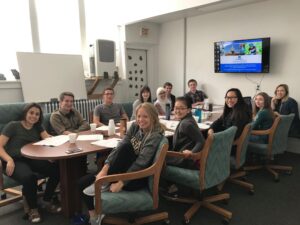
Before joining Listen4Good, the Keweenaw Community Foundation focused on gathering feedback from its grantees, as part of grantmaking cycles and direct service collaborations and had limited community-wide input processes. Feedback was generally issue-specific and did not allow for a broader understanding of public perception or unmet needs across the Foundation’s rural region.
KCF collaborated with Listen4Good to launch a Community Impact Survey, engaging a diverse sample of residents across the Keweenaw region.
To develop its community survey, the team reviewed L4G’s custom question bank and starter survey template. Working with their L4G coach, they adapted these tools to create a customized survey that reflected and integrated local priorities. As responses started to come in, KCF’s coach helped pressure test the representativeness of who they were hearing from and think critically about how to interpret and act on the data.
In the end, KCF heard from 253 community members.
Among survey findings were that:
- There was strong alignment between survey demographics and census data, validating the survey’s representativeness.
- About half of the respondents were unfamiliar with KCF, revealing gaps in visibility and communication. In response, KCF launched an impact report to share updates and solicit feedback, and invested in staff capacity to enhance engagement.
- Community members expressed a desire for more accessible communication and clarity about KCF’s role as both a grantmaker and support hub.The data highlighted opportunities for KCF to better reflect and share its existing involvement in key areas, such as childcare and nonprofit education and networking.
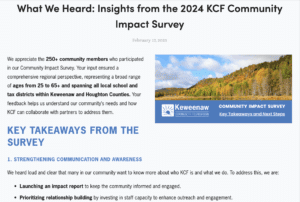
KCF published its Community Impact Report in multiple formats including blogs, flyers and events. The Foundation made early commitments to share updates regularly, streamline online grant reporting to enhance efficiency and user experience, and host open-house sessions for nonprofits during grant cycles, emphasizing that this was an ongoing process. Their Listen4Good coach provided input throughout, particularly in crafting clear and accessible messaging for the community.
“We are committed to continuing to learn and sharing with the community. This is a dynamic, living process.” Keweenaw Community Foundation
KFC also used this experience as a jumping-off point to apply for a grant to continue their work with Listen4Good, identifying community data needs at the intersection of natural resource stewardship and economic development in the Keweenaw Region, all while ensuring alignment with tribal land treaties.
Externally, they’ve rebuilt trust by sharing early wins and naming areas where more work is needed. The act of listening and then responding has helped KCF evolve from a grantmaker to a more inclusive, community-rooted collaborator.
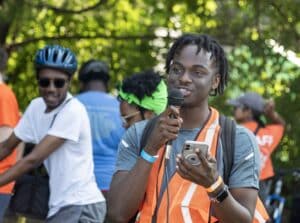
These case studies demonstrate how Listen4Good’s community survey framework can be customized to suit organizations of all sizes, including those with limited capacity or complex histories.
For both MFFC and KCF, community surveys activated community voice, shaped strategy, and built long-term relationships. By making feedback exercises heavily participatory, both organizations were also able to extend who they gathered feedback from, all while building trust and strengthening ties with community members.
For funders and field leaders: Investing in community feedback builds trust.
In a time when trust in institutions is fragile, these stories show what’s possible through high-quality listening. The most trusted institutions are those that have positive intent and reliable experiences for those who engage. Organizations that listen effectively and close the loop build trust by showing that they care, that community voices matter, and that they can respond effectively. If we want to rebuild trust in institutions, high-quality listening is the place to start.
The above examples show how investments in feedback infrastructure can lead to:
- Greater community trust and participation
- Clearer pathways for resident-led advocacy
- Stronger alignment between funder goals and real-time community needs
- A more inclusive, transparent, and accountable social sector
